My Experience in Rennes
Why did you choose to go to Rennes, France?
I wanted to go to a French-speaking country in order to improve my French language, but at the same time I preferred a medium-sized city, bordering on small. That's why Rennes was the perfect candidate! It is a small French city in Brittany with some 200, 000 inhabitants, a third of whom are university students.
How long did your grant last? How much money did you receive as help?
I was given a grant by the Ministry of Education which included €2, 000 at the start of December, which is when I started my placement in Rennes. You must remember to add to this the accommodation help that the French government offers to students which is usually around €90 a month, depending on how much rent you pay. It is somewhat a tiresome, bureaucratic process, but they help you do it without any problems involving the social assistants (some of them speak English).
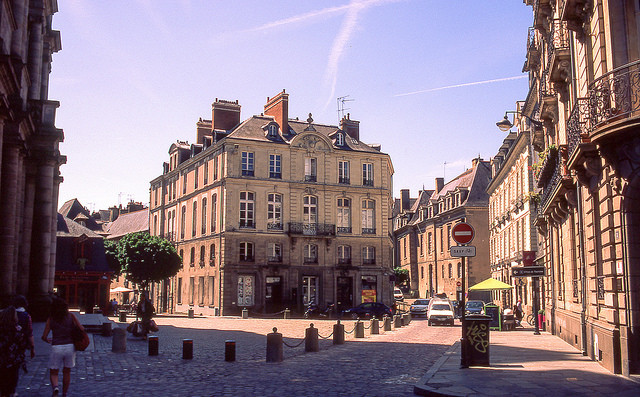
What is the student lifestyle like in Rennes?
The city is famous throughout France for its student atmosphere. You could compare it to the Spanish University of Salamanca. Despite its small size, there are 60, 000 university alumni which makes up almost one third of the population. In turn, there is a large number of exchange students, I would say around half. All the students make room for a magnificent nightlife compared to other destinations in France.
Would you recommend the city and the University of Rennes to other students?
Of course! If you want to learn French, don't think twice. There are lots of degrees that offer a year out on exchange. The university is not very different to any other Spanish one and adapting yourself to it won't be a problem. The city is small and you can walk to many of the areas if you want to. You don't need to worry though, because Rennes is very well-connected with a metro (another is being built in 2016), a wide network of bus routes and its system of municipal bicycles. You will have various options to move around the city with and you won't have any kind of problem.
What is the food of the country like?
Well, we all know what French food is like... In my opinion, it's a bit overrated, but it's not bad at all. In this region they specialise in cakes and crepes. The typical thing to eat is "galete au saucisse", which is like a sausage crepe, with a bottle of cider - the star drink of the region. As it is located so close to the sea, there are many seafood dishes to try, especially the oysters and the steamed mussels.
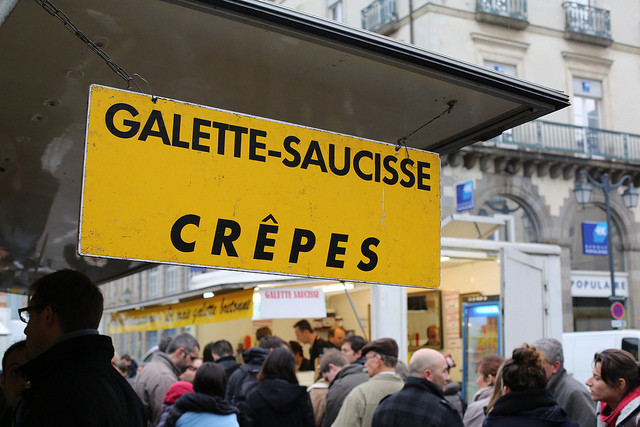
Was it hard to find accommodation in Rennes?
There are several pages filled with advertisements where you can search for apartments. The problem is that most are for stays longer than 9 months. Although, it seems as if you can break the contract whenever you want if you give one month's notice. The average price per room is around €350 with expenses included, but it is normal for them to charge you €400. The residences are a good option, the public ones that belong to the CROUS organisation are very cheap at around €250 per month and most of them offer a private bathroom and a shared kitchen. There are also private residences, but they are more expensive, costing up to €500 per month, but they usually offer a private bathroom and a space for your own cooking. I would recommend that you start looking for accommodation as soon as possible. Places in the residences disappear fast and are only available for the students who are going to stay all year round. The longer you take to send emails to possible landlords, the more you will pay for a poorly-located apartment. In my opinion, the best areas to look for an apartment are:
- Villejean: this is the most well-known student neighbourhood. Here is where the University of Rennes II is and its metro stop. It will take you 5 minutes to arrive in the centre of town on the metro, 10 minutes on the bus and not much more than 25 minutes walking (which is important when you go out during the week). Here is where most of the students live and where you can find some of the university residences.
- Republique and Sainte-Anne: this is the epicentre of the city, all of the buses go through here and it is where most of the clubs and nightlife is. For me, it has the best two places to live in the city, the old town and the heart of the city. The problem is money... The cheapest room is approximately €400 per month but, with the state's help, you could end up paying only €300.
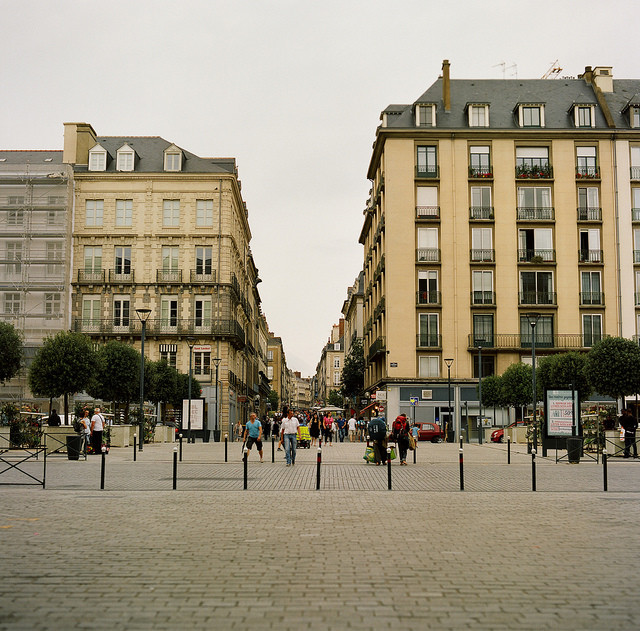
How much does it cost to live in Rennes?
It more or less depends on what kind of lifestyle you have, but I would say as a minimum, around €550 per month taking into account rent which, if you live in a flat, can be up to €650 if you spend a lot. With €700 you can live perfectly easily with all of the extra bills you may incur (including a trip and going out clubbing). There is the possibility of going out every day but it will cost you dearly, half a litre of beer outside happy hour is not much less than €4, and in some bars it can cost you €8 a pint. If you want to save money, I recommend you to go to university parties or to take advantage of the daily offers of the different bars in the Rue de la Soif. Drinking in clubs is a thing of the past in Rennes unless you are a millionaire, one shot will not be less than €5 and drinks usually cost €9. In all other respects, life is a little more expensive than in Spain, with living costs being similar to Madrid or Barcelona. Prices in supermarkets are a little more expensive but not much more.
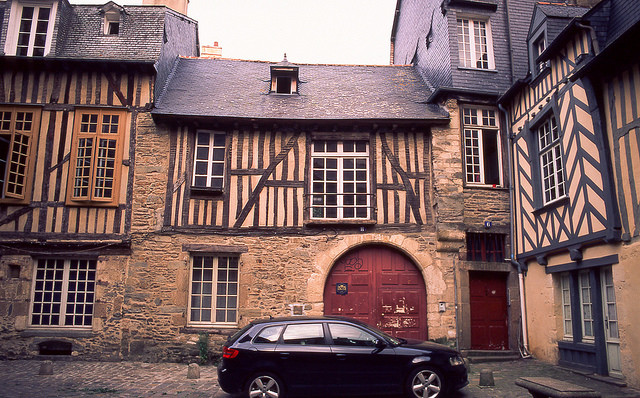
How is your language? Did you go to any course at the University?
It's France, so people don't usually speak several languages. Depending on which university you go to, you may find people who speak English and even some students who speak Spanish. However in general, most people only speak French. Yes, it is true that in banks certain people speak English. If you have a minimum level of French, you won't have many problems. If you don't speak any French then don't worry, you will learn quite quickly if you mix with the French more than people from your own country, and there is always someone who can help you at the beginning to do the first couple of things. Most universities have language courses, but their effectiveness depends on your interest in learning. The best thing to do is to get together with the native French people as much as possible or with other Erasmus students that know more French than English.
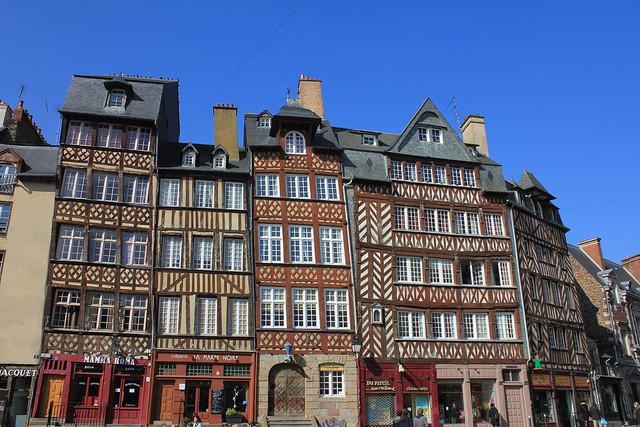
What is the most affordable way to get to Rennes from your city?
The best option is undoubtedly to get a plane. From Barcelona there are several direct flights a week, but they are not especially cheap. Another option is to fly to Paris and then take a TGV to Rennes. Another very good option is to fly to Nantes and then take a blabacar or a train to Rennes, if you look ahead will be the cheapest option without a doubt. I recommend getting the 12-25 SNFC card for those who intend to catch the train more than twice in France during their stay as it offers discounts of between 50% and 30% for children under 26 years and is profitable after only three trips, approximately.
Where do you recommend going out in Rennes?
The area known for its excellence is Sainte Anne where the Rue de la Soif is, which is a street with about 15 bars open every day until 1am and until 3am on weekends. They have happy hour until 9 or 10 pm where you can find some relatively inexpensive offer for what is France. The schedule in Rennes is completely different, people start drinking at 7pm and start to withdraw home around 12 or 1 in the morning. From 4 am it will be difficult for you to see anyone on the street. All this happens on the weekends that begin on Thursdays in Rennes, because during the week many fewer people go out to party at bars. The main reason is that the night buses only operate on Thursdays to Saturdays. The rest of the week the metro closes at 00:45 and you will have to walk home if you want to go out on Wednesday for example. In the central area there are also several Irish pubs and then three clubs which are PYMS, L'Espcae and Gatsby, they are small clubs compared to those in Spain. The tickets vary in price but it never cost me more than 15€ with a single drink, plus the €2 for the cloakroom. They are good to go to from time to time, as they open until 6am, but they're not the best in the city.
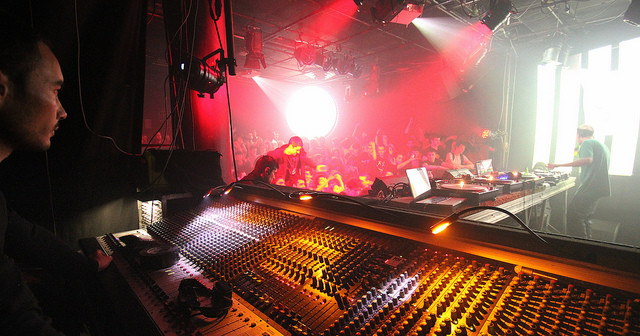
What about eating in Rennes? Can you tell us your favourite places?
Like most of France, Rennes is full of creperies where you can taste the Breton biscuits. Then there are several French restaurants but nothing different to what you can find throughout the rest of France. For fast food, I have to mention Pizza Sprint with a good 3x1 offer for Saturdays and then kebabs.
What about a cultural visit?
The region of Brittany has hundreds of medieval villages to escape to during the weekends, but we must highlight Dinan (medieval city), Saint Malo (a village within a fortress at the edge of the sea), In Normandy you have Mount Sainte Michel, Normandy and Rouen, then south, Nantes and the castles of the Loire.
Any advice you want to give to future students in Rennes?
Start looking for accommodation ahead of time, depending on where you find it you will have a better or worse time. It has a lot of influence on your Erasmus experience. I know that at first it costs but try to get together as little as possible with Spaniards, meet people from other parts of the world, with other cultures, mix with French people and learn their language. Find out about the activities and events your university organises and sign up for as many as you can. I'll repeat it again, try to get to know as many people as possible, talk to everyone you come across and make sure you enjoy yourself to the fullest.
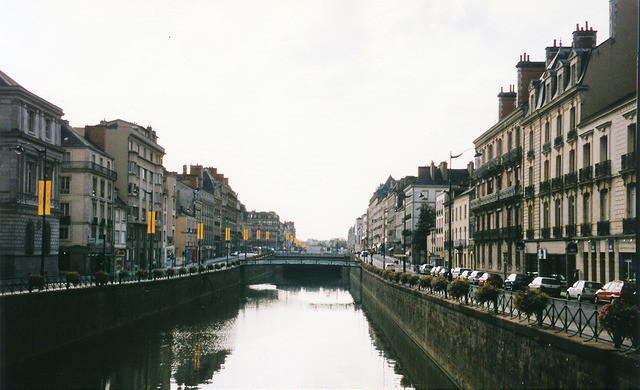
Photo gallery
Content available in other languages
- Español: Experiencia en Rennes
- Français: Expérience à Rennes
- Italiano: Esperienza Erasmus a Rennes, Francia.
Share your Erasmus Experience in Rennes!
If you know Rennes as native, traveler or as exchange student... share your opinion on Rennes! Rate different characteristics and share your experience.
Add experience →






















Comments (0 comments)